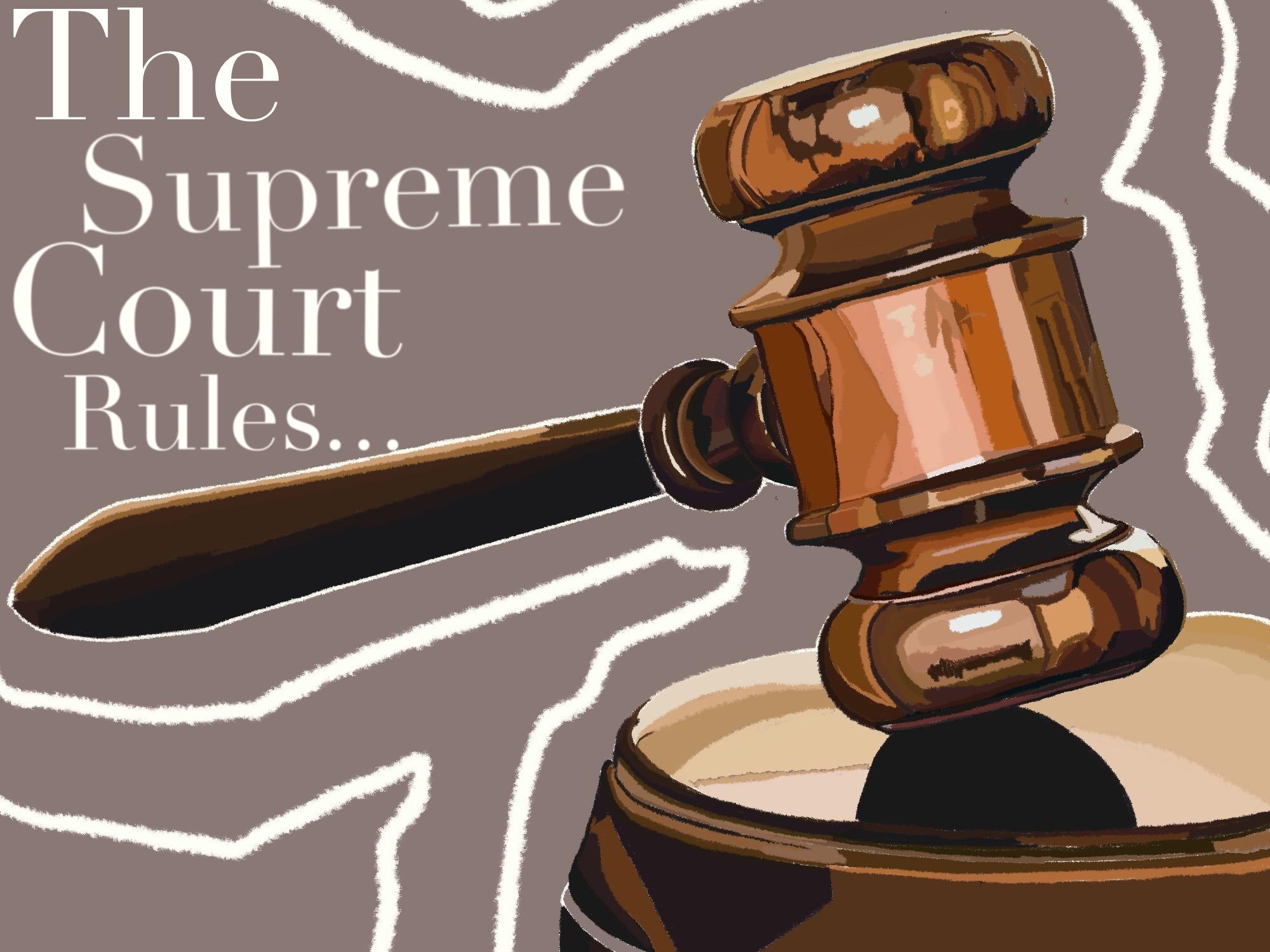Last Thursday, the Supreme Court ruled the Constitution does not require Congress to extend Supplemental Security Income benefits to residents of Puerto Rico.
The federal Supplemental Security Income program, or SSI, is a social safety net program passed in 1972 and provides financial assistance to aged, blind or disabled adults who cannot fully support themselves.
The case in question was United States v. Vaello Maduro, and it presents a devastating blow to the rights and well-being of Puerto Ricans. That the Supreme Court — which is tasked with upholding justice — could allow so many citizens to fall through the cracks of an important system is unacceptable.
But how did the decision come to be? In order to understand, we must revisit the facts of the case.

The Vaello Maduro in this case is Jose Luis Vaello Maduro, who was born in Puerto Rico and moved to New York in 1985. There, upon suffering a serious illness, Maduro started receiving payments from the SSI program. However, a year later, he relocated to Puerto Rico to be closer to his family. He continued to receive deposits in his bank account from the program until five years later. That’s when the government realized for the first time he’d relocated.
Under the law, SSI benefits do not apply to citizens residing outside of the 50 states, meaning that by moving back to Puerto Rico, Maduro unknowingly disqualified himself from the SSI program.
The court provided the following reasoning for allowing this gap in SSI coverage — it’s not necessarily that the U.S. is allowed to exclude Puerto Rico from the SSI program, but rather, that the U.S. is not legally required to extend the program to citizens in Puerto Rico.
This conclusion, legally speaking, is correct and built on a long-standing rule known as a rational basis test.
A rational basis test essentially means that courts will uphold any legislation, as long as the legislatures can back up the policy with a rational explanation.
In the case of United States v. Vaello Maduro, the “rational basis” for excluding Puerto Rico was expressed by the majority opinion, stating that, “In devising tax and benefits programs, it is reasonable for Congress to take account of the general balance of benefits to and burdens on the residents of Puerto Rico.”
Essentially, because Puerto Rico pays less federal taxes, the Supreme Court majority holds that it is a rational basis for Congress to extend less benefits to them.
Though the majority opinion makes legal sense, when viewed from a policy angle it’s far less convincing.
Sonia Sotomayor, the lone dissenter, and daughter of Puerto Rican parents, pointed out the questionable logic behind what the majority ascribed as Congress’s “rational basis.”
She notes that the SSI is a program meant for needy individuals, not the entirety of Puerto Rico, and that “SSI recipients pay few if any taxes at all.” What this means is the “rational basis” makes very little sense, as the recipients of payments from this program would most likely pay the same federal taxes in the U.S. as they would in Puerto Rico.
Not only does the exclusion of Puerto Rico make little budgeting sense, it also has pragmatic consequences on Puerto Rican citizens.
The Puerto Rican equivalent of the SSI provides an average payment of $82 a month compared to the SSI average of $574.
Had the court ruled the other way, it would’ve had a profound effect on the 30,000 or so Puerto Rican citizens who would qualify for SSI.
It’s hard not to interpret this case as anything but a major blow to the Constitutional rights of Puerto Rican citizens. Yes, it’s true that congress’ exclusion of Puerto Rico from SSI lies on dubious logical footing, but it’s also true that our judicial system, whose duty it is to protect these Constitutional rights, is powerless to interfere.
However, we must also consider that the road to lasting legal reforms is often long and gradual, and that a loss in the courts doesn’t necessarily spell the end of a movement.
Though she was the lone dissenter, it’s not as if Sotomayor’s vote was in vain. Dissenting opinions are often important in influencing, and sometimes even manifesting, into measurable policy change.
Such was the case with Ledbetter v. Goodyear where Justice Ruth Bader Ginsberg found herself on the losing side of the vote. But despite that, through her dissenting opinion, she was eventually able to sway enough minds in congress to pass the Lilly Ledbetter Fair Pay Act.
But wishful thinking aside, it is still unlikely that Sotomayor’s words will persuade Congress to take any immediate action.
Yet, it is important to remember that it is also equally unlikely that this is the last time Puerto Rican citizens will fight for their Constitutional rights.
It may be case-closed on Capitol Hill, but only for now.























































































































jane m stangl • May 2, 2022 at 12:07 pm
“Rational?” Hasn’t PR suffered enough at the hands of multiple acts and inaction by the US? While a US commonwealth, we have lorded over the “Isla del Encanto” for nearly every reason but to extract its beauty and enact our touristic and tax-haven privileges for years, decades.
So while Borinquen’s are (second-class) citizens of the US, yet receive less than 15% of the average (first-class) US citizen regarding SSI payments…what more data do we need to see such blatant inequities? The under-reported deaths from Maria? The continued loss of electricity, average income, loss of the professional workers of PR, climate impacts…???
Thank you for your work, Michael Lin.